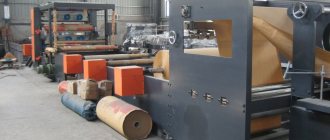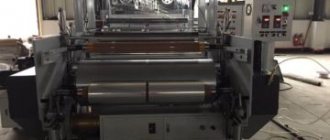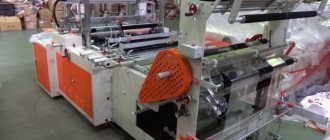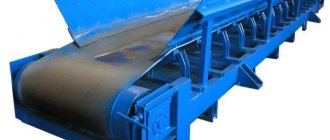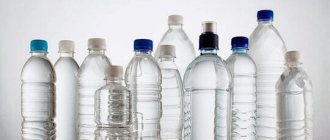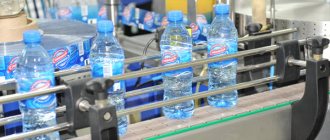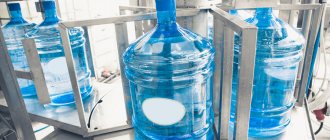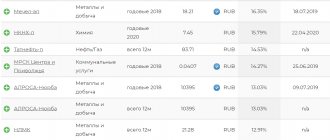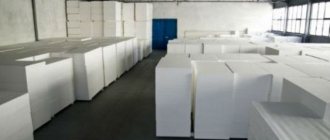Statistics and benefits
An increasing number of residents of Russia (and not only) are becoming admirers of healthy eating and, accordingly, environmentally friendly water. Few people now with peace of mind will open the city faucet with running water and drink the liquid that flows from it.
Therefore, it becomes important to purchase drinking water in stores and deliver it to residential buildings, offices, childcare centers and other crowded places.
Every year the need for clean liquid only increases, and the number of consumers increases. According to experts, about 65 million bottled water were sold in Moscow alone over the past year. Manufacturers of this product have identified an increase in demand for such water, especially in large cities, and skillfully organized its production and sale.
Thanks to some studies, it was found that one office worker can consume an average of 0.5 liters of clean water during the day. This amount reaches 10 liters per month. And if this is a company with about 50 people, then the annual revenue can be approximately 75 thousand rubles. And this does not include money taken for equipment rental and delivery.
Preparation and business plan
When planning your own business in this area, before purchasing equipment, you need to draw up a good business plan. First, you need to decide where the water for sale will come from - whether it will be produced on your own or purchased from a specific supplier.
When choosing the first option, it is necessary to calculate all the costs of equipment used for the extraction and bottling of water, which must be included in the business plan.
It is recommended to first focus on selling drinking water at retail through another production facility, subsequently setting up your own business.
And when the product becomes recognizable and demand is visible, you can arrange delivery to individuals and corporate buyers. Attention! It must be remembered that large companies producing bottled water extract natural liquid in two ways - they purify it using filtration equipment and extract it from mountain and mineral springs.
How are the kiosks arranged?
As a result, the first water bottling kiosks appeared in Kirov. Outwardly, they resemble that same five-liter bottle. The top of the kiosk is a tank for six tons of water. The liquid flows down without pumps, simply under the influence of gravity; the walls of the tank are made of thermal insulating materials, so the water does not heat up in hot weather and does not freeze in cold weather. At the same time, the buyer has the opportunity to purchase water in his own container, thereby saving on packaging.
The target audience
In this matter, indisputable statistics can be drawn - the larger the locality in which you plan to do business, the more consumers you can reach. In large cities there are many more private houses, high-rise buildings and offices, therefore, you can get promoted here much faster.
But, do not forget that there are many companies producing and delivering water, and a business plan should be developed that will minimize risks.
Today, bottled water is purchased by many segments of the population, of all ages and income levels. Supermarket shelves are filled with all sorts of clear liquid options, the pricing policies of which can satisfy almost everyone. From which we can conclude that when organizing a business on the water, the cost of production should be, if not lower, then at least at the same level as competitors.
Legal registration
Selling water as a business is one of the same types of sales as food products. Therefore, all work must be set up legally.
For this you will need the following documents:
- Certificate of registration of individual entrepreneur - if only a sale is planned.
- LLC certificate - if there is water production.
- A certificate confirming the quality of the products used for production (issued by the SES).
- The conclusion of the SES and the fire service, indicating that the technical equipment meets all standards and norms.
- A license giving the right to conduct business activities in this particular area.
Having all the above documents in hand, you can draw up an agreement with the supplier for the supply of water (provided that the company does not plan to extract water), as well as agreements for the provision of all consumables, including containers and other necessary goods.
Important! Companies engaged in the retail and wholesale sale of drinking water can only obtain a license for a period of 3 years. After this time, you will need to re-register.
Water production technology
Cooler water is the result of a rather complex technological process and is produced in several stages.
- Drilling wells and extracting artesian water or taking the initial product from the water supply.
- Purification of raw materials using filtration. For this process, special filters are used, and it itself consists of two stages: coarse cleaning (when large mechanical impurities are removed) and fine cleaning (removing smaller impurities).
- At this stage, the quality of the water is monitored, the content of mineral substances in it is measured, as well as the addition of any components (for example, if mineral water is produced).
- Water disinfection. As a rule, equipment with ultraviolet radiation is used for these purposes.
- Ozonation (oxygen saturation). Such cooler water not only has a beneficial effect on people’s health, but can also be stored for a long time without losing its beneficial qualities. The use of ozonation technology eliminates the need for chlorination of water during production. However, this process will require the purchase of additional equipment, consisting of an ozone generator, thermocatalytic destructor, injection pump, etc.
- Preparation of bottles for bottling, namely their disinfection using high temperatures.
- The process of bottling finished drinking water.
Premises, investments, equipment
The choice of premises plays a significant role in business development. Regardless of whether it is your own or rented space, it must correspond to the volume and capacity of the entire production.
To do this, it is enough to provide the following points:
- selection of the site where water extraction will be carried out (if this is in the plans);
- a room where water purification will be carried out;
- bottling room;
- warehouse for storing processed products;
- premises for company employees.
Depending on the scale of production, the area of the entire premises is selected. If you are planning a large enterprise, then it is better to look for a building outside the city, where the rent will be much cheaper than in the city.
Having decided on the premises, we proceed to choosing equipment - it can also be purchased or rented.
To operate a company you may need:
- water purification system (aeration, dosing of reagents);
- bottling device;
- bottle making machine (optional);
- traffic jam machine;
- label machine.
If the enterprise plans to engage not only in bottling, but also in water extraction, then additional costs will be required for the purchase of the following equipment:
- well pump;
- fine and coarse filters;
- blowing equipment;
- installations for water ozonation;
- duplex air purifier;
- injector and injection pump;
- water tanks.
Larger productions can afford to buy a special installation that processes plastic bottles.
Important! In the process of work, additional costs for equipment may arise, so your business plan should pay attention to this by allocating funds for them in advance.
Workshop employees
The number of employees and the positions in which they are needed also depend on the selected water source.
If you obtain water from an artesian well, the following workers will be needed:
- Workers extracting water from underground 1-2 people
- Driver of a truck for transportation of raw materials and finished products
- Hardware Engineer
- Container blowing master
- Worker on the bottling line
- Sales manager
- Accountant
- Production Manager
- Cleaning woman
The number of employees per organization for each position depends on the scale and capacity of production. As the plant develops, it will be necessary to employ more people to establish a shift work schedule.
In the case of bottling bottled water from tap water, the list of employees remains the same, with the exception of water extraction workers, in which case they are not needed.
It is impossible to estimate the costs of employee salaries in advance, since it depends on the subject of the country in which production is located and the level of qualifications of employees.
Staff
For coordinated work, the opening enterprise will require professional employees. It is also necessary to specify in the business plan how many personnel will work, and what salary is calculated for each of them.
A company producing and selling water will need the following employees:
- chemist or technologist - a person who will be responsible for water quality;
- people working in the workshop, on installations;
- packers;
- advertising manager;
- accountant;
- drivers.
Of course, this is the minimum composition required at the initial stage of work. After the enterprise “gets on its feet”, the demand for products increases, and additional vacancies and employees may be required.
Marketing, promotion
When opening a company for the extraction and sale of drinking water, it is recommended to study the features of the same business from competitors, identify their strengths and weaknesses, study the assortment and pricing policy in order to adjust the work to improve your results.
An advertising campaign plays an important role, which, if presented correctly, will activate and increase sales.
Your own bottle design and memorable name will make the product recognizable among customers. To promote a product, you can create advertisements and place them in local print media or online platforms.
After printing out advertising leaflets, deliver them to mailboxes in multi-storey buildings, hire promoters who will distribute them on the street and in other crowded places. Order small magnets, pens or calendars with company logos and give them as a gift with a bottle of water ordered.
Place banners with information about products around the city. Make all kinds of discounts and promotions, giving the buyer the opportunity to get to know, evaluate and love their own products.
Basic expenses
From all of the above, we can identify several main expense items that will need to be allocated to implement a business on the water:
- Registration of a company, permission to do business, certificates from the SES and fire service - 100,000 rubles.
- Rent of premises – 100,000 rubles. monthly.
- Equipment – RUB 1,000,000.
- Employees' salary is 500,000 rubles.
- Monthly delivery costs – RUB 350,000.
- Advertising – 100,000 rubles.
- Water bottles – RUB 100,000.
- Vehicles for distribution and delivery of goods – 500,000 rubles.
The approximate amount that will be needed to open a business producing and selling bottled water can be approximately 1.5 - 2 million rubles.
How to open a business using artesian water
One developed well brings in up to 20 million rubles annually. According to SanPin standards adopted by the Ministry of Health in the summer of 2002, bottled drinking water is divided into 2 categories - first and highest
The first category includes water that is safe for health and meets the criteria for assessing organoleptic properties. Water of the highest category is considered safe for health and optimal in quality. To increase the shelf life of water, silver is sometimes used. According to SanPin standards, such “silvered” water cannot be used for preparing baby food.
Drinking water comes into bottles in different ways: some companies bottle artesian water, which does not require any purification, others bottle highly purified water, artesian or tap water. “If the composition of the water sold by one or another company does not meet current sanitary standards for some reason, for example, it contains “extra” chemical elements, it is subjected to additional purification,” notes Dmitry Golovkin, a specialist at Promburvod CJSC, during which together With harmful “chemistry”, some of the elements useful for the human body are also removed from the water.” “Therefore, in Europe, only water from artesian wells is allowed for sale, which does not require so-called “water treatment” - neither additional purification, nor disinfection, and is packaged directly at the production site,” comments Olga Antipova, sales director of Rodnikovy Krai LLC, “The more natural the water, the more valuable and beneficial it is for humans.”
Step 1. Finding a place for a well Any entrepreneur can open a business for extracting from an artesian well and bottled drinking water, regardless of education and work experience.
“ But such a project will not be possible without serious financial investments and professional personnel,” says Olga Antipova, sales director of Rodnikovy Krai LLC. You will have to resort to the help of specialists already at the stage of searching for an artesian well. “Information about artesian water deposits is contained in the Groundwater Cadastre. But this does not mean that water can be extracted from any of these deposits and then sold as drinking water, warns Dmitry Golovkin, a specialist at Promburvod CJSC. – First of all, you need to look for water in an ecologically clean area. Then, a series of special analyzes of the water in a particular field should be carried out to assess its quality. Only specialists can do this.”
To select a suitable habitat for the “right” water, you need to contact one of the specialized institutions involved, in particular, in the exploration of water deposits and drilling turnkey wells (i.e., including the preparation of the necessary documents), for example, in ZAO Promburvod or State Enterprise "Sevzapgeology". “We were looking for a suitable deposit in the Pskov and Novgorod regions, and found it 70 km from St. Petersburg, not far from Lembolovo, where in the old days the famous Trinity Springs were located,” Olga Antipova shares her experience.
Step 2. Drilling and design Development of a project in which specialists will characterize water and estimate its approximate quantity in a specific field will cost approximately 400 thousand rubles and take 6 months. Once the project is approved, drilling of the well can begin. Each meter of drilling costs from 8,000 rubles. Artesian waters usually lie at a depth of 200 to 300 m. Thus, for drilling a well you will have to pay from 1 million 600 thousand to 2 million 400 thousand rubles. “To start the project, third-party investments were required,” says Olga Antipova, sales director of Rodnikovy Krai LLC, “with the help of one of the leasing companies, we took out a bank loan.” While drilling work is underway, the entrepreneur can begin processing the necessary documents.
“First of all , you need to agree on the “drilling point” at the SES,” advises Dmitry Golovkin, “then register the right to ownership or lease of a plot of land, obtain a license for the right to use subsoil from the Territorial Department of Natural Resources, etc. To prepare all the necessary documents, you need to go through about 30 authorities; document preparation services, as a rule, are also provided by specialized organizations involved in the exploration of water fields and drilling turnkey wells. It took Rodnikovoy Krai about 2 years to search for a deposit of high-quality artesian water, preparatory work and construction of a well, as well as paperwork for land and work.
Step 3. Equipment To extract artesian water from a well and bottle it, you will need special equipment. The equipment package should include special industrial pumps and a filling process line. You will also need a water disinfection installation. “According to SanPin standards, it is recommended to disinfect water - by ozonation or physical methods, for example, using ultraviolet irradiation,” explains Olga Antipova, head of the sales department of Rodnikovy Krai LLC. Installation of equipment, as a rule, is carried out by divisions of the same companies that sell it.
The equipment of the production workshop depends on the volume of production, as well as on where it is planned to bottle the water - directly at the well or in a geographically remote area. In the latter case, water is transported to the bottling shop in tanks. “The bottling shop was built right on the well to eliminate the possibility of water from the well coming into contact with any bacteria-carrying surfaces or air,” recalls Olga Antipova. – To do this, we purchased a certified American technological line from the Babyworks brand, costing about $100 thousand.
The equipment of the workshop continues. We are completing the installation of another automatic line, which will allow us to bottle water into 5-6 liter containers. Its cost is about $50 thousand.” Now the company bottles 38 thousand liters of water daily, namely 2000 polycarbonate containers of 19 liters each. Polycarbonate containers are produced in Russia, in particular, (Moscow) and Craft (Vologda). The cost of one 19-liter bottle is $5-6.
Step 4. Personnel The production, bottling , packaging and sale of artesian water will require qualified instrumentation specialists (instrumentation engineers), as well as workers, support workers, maintenance personnel, drivers and managers. There are approximately 35 people in total.
“ Since the artesian well is located not far from Lembolovo, workers and maintenance personnel were recruited from among local residents, but specialists could not be found here. That’s why we bring engineers to work from St. Petersburg,” says Olga Antipova, head of the sales department of Rodnikovy Krai LLC. According to her, in St. Petersburg the market for specialists in this industry is also small, and many of the company’s employees previously worked in other water bottling companies.
In addition, in the St. Petersburg office of the company there is a staff of managers and dispatchers who search for clients (both organizations and individuals), as well as coordinate and monitor the execution of orders. “Since the company claims to deliver water to customers, it has its own staff of drivers and an agreement with a transport company, which is also involved in the delivery of orders,” reports Olga Antipova. “In total, 14 machines distribute water every day.” Depending on qualifications and job responsibilities, the salary of company personnel is $400-800.
According to Olga Antipova, the payback period for an enterprise producing, bottling and selling artesian water is about 2 years. “In the future, net profit may amount to 6-7 million rubles per year. Costs of starting a business for the extraction, bottling and sale of drinking water*.
Search for a deposit of artesian water and assessment of the water in it - up to 400 thousand rubles. Drilling a well - 1,600 thousand - 2,400 thousand rubles. Water bottling line - 3 million rubles Motor transport, packaging, overhead costs - 1.5 million rubles. Total: 6-7 million rubles. Payback period 2-3 years Planned profit: 6,000,000 – 7,000,000 rubles. per month
Your own business All tags
Select the fragment with the error text and press Ctrl+Enter
We discuss the news here. Join us!
Profit and loss
On average, a water sales company can sell goods worth 100 – 300 thousand rubles per month. Thanks to this, net profit will appear within one and a half to two years. If an organization independently produces water, it will pay off in about 5 years.
It follows from this that for faster profits, it is better to start with the sale of water, purchasing it in finished form - extracted and purified.
To prevent the company from incurring losses, you should choose a good premises that does not require repair work, and therefore the cost of it. Also, do not skimp on equipment by choosing high-quality installations. Hire specialists with experience who know the structure and know how to establish a work process.
Business plan for bottling water for private consumers
A kiosk where water will be sold is one of the options for organizing sales. To open such a business, you need to find a place to install a kiosk (optimally a residential area with a high population density), enter into a lease agreement with the administration, and also find wholesale suppliers of artesian water.
The cost of the kiosk itself with a module for bottling water, a filter and an ozonizer is about 250-400 thousand rubles. They differ in tank capacity and are designed for 500-4000 liters.
An approximate business plan for opening a kiosk can be presented as follows:
- Initial investment: RUB 300,000. (buying a kiosk).
- Monthly costs - 28,000 rubles, of which rent of space for a kiosk - 1,000 rubles. per month; purchase of artesian water for 2 rubles. for 1 liter (subject to sales of 6000 liters per month) - 12,000 rubles; seller's salary - 15,000 rubles.
- Revenue: when selling 1 liter for 10 rubles. will be 60,000 rubles. At the same time, net profit (after paying 6% tax according to the simplified tax system) is 30,080 rubles.
With this option, it will be possible to return the initial investment in 10 months, and then continue to work for profit. When you open several points, your monthly profit will only grow.
A business plan for selling water through a machine may have similar parameters. Its differences will lie in the fact that in this case there is no need to pay salaries to staff: sales will be carried out automatically, without human intervention. The cost of the machine itself is several times cheaper and amounts to about 150 thousand rubles. When selling a similar amount of water, revenue will be 60,000 rubles, and net profit will be 44,180 rubles. The “break-even point” when selling water through a vending machine will be reached within 3 months. The calculation is very approximate, as it does not take into account energy costs and advertising costs.
If the region where you do business has laws to stimulate socially significant areas of work (which include water purification), then the entrepreneur can count on receiving subsidies from the state under one of these programs.
Delivery organization
Sales of water can take place both in specialized establishments - shops, supermarkets, and through delivery. It is important to understand here that by placing an order for the first time, the buyer will not only taste the taste of the water, but also evaluate the price of the product and the quality of delivery.
When organizing delivery to individuals and corporate clients, you should adhere to the following recommendations:
- To save fuel consumption, the route from customer to customer is carefully thought out.
- The time and place of delivery is set by the customer.
- Punctuality.
- Maintaining the presentation of the container into which water is poured. After the expiration date, it should be disposed of without hesitation.
When planning to start delivering water, one of the expense items should include the purchase or rental of a car. In the summer months, the load may increase - it is worth considering this and, as an option, hiring an additional driver.
Statistics compiled by experts indicate that this type of sale of drinking water during the hot season can bring up to 700% of income. Depending on the production capacity, location of the company and quality of the product, such a business will pay off within 2 years.
How it works?
Those who have been to Japan are surprised by the huge number of vending machines on the streets of cities selling a wide variety of products. Returning to their native Voronezh, Novosibirsk or Murmansk, they do not notice such an abundance of them and understand that a profitable type of business is not fully developed in our country.
But which type of slot machine can be considered the most profitable and reliable? Undoubtedly, this is a product that every person uses daily and without which it is even difficult to live. And this product is perfectly clean, tasty and healthy drinking water. This is how drinking water dispensing machines become part of everyday life.
But is this possible in principle, because, as many believe, large reservoirs will be required to store purified water, organize its delivery, or install complex treatment stations. And here modern technologies come to the rescue, which are built into the water filling machine and allow you to turn ordinary tap water into the purest product. Moreover, the expense is relatively small, but guarantees a stable income.
Vending water bottling machines purify water immediately before dispensing it using a multi-stage purification system:
- mechanically to remove large particles;
- the use of a nanomembrane for maximum preparation for purification by reverse osmosis in order to remove the smallest particles of mechanical origin;
- a reverse osmosis installation, which removes hardness salts, dyes, nitrates, sodium ions, sulfates;
- passing through a mesh made of natural silver, which allows you to saturate the water with useful substances;
- adding mineral salts that improve the taste of water and are necessary for the body;
- flow of water into the tank for short-term storage;
- ionization of water at the outlet, at the time of direct release into consumer containers, which eliminates the entry of harmful microorganisms.
This approach to water purification allows us to offer consumers not only clean and healthy, but also surprisingly tasty water.
Advantages and disadvantages
Regardless of how the water is obtained - from natural sources or purchased in special laboratories, such a business can become profitable. The demand for purified water is growing every year, because high-quality water is the key to a healthy body. The main advantage of such a business is the low cost of the product.
The price increases already during the process, when the water is filtered and bottled. And with the purchased equipment used for this, in a couple of years the costs will become minimal. The main disadvantage is a lot of competition, because in large cities this niche has long been filled. But, with the right approach and compliance with all the rules, even a small production will be able to find its place in this area, moving ahead or ahead of its rivals.
